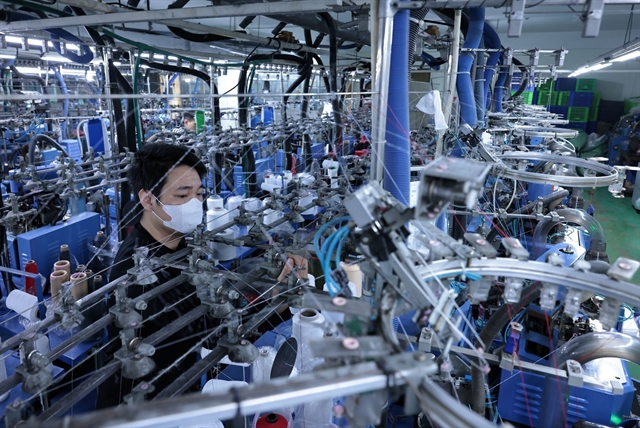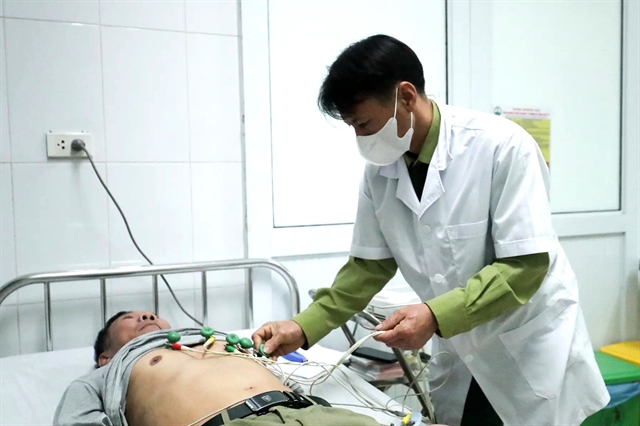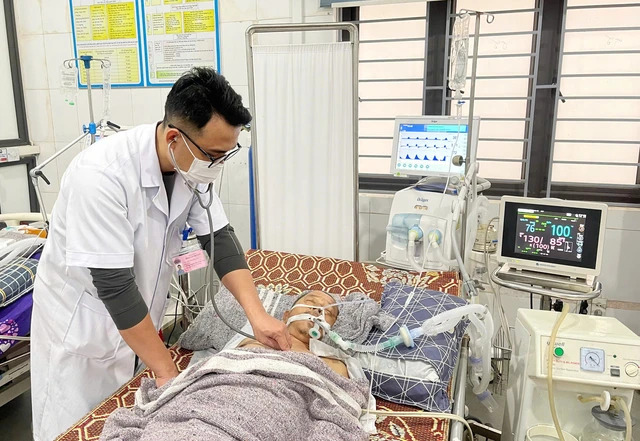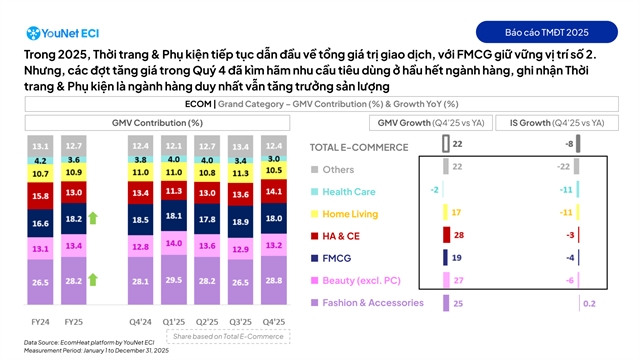 Economy
Economy

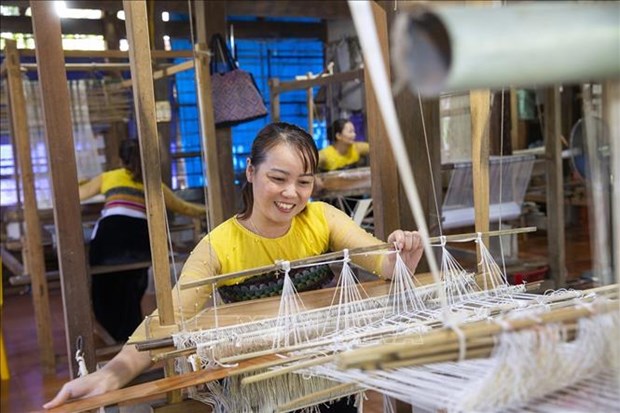 |
| A cooperative specialising in traditional weaving in Hòa Bình Province. — VNA/VNS Photo Trọng Đạt |
HÒA BÌNH — Cooperatives in Hòa Bình Province, as evaluated by the provincial Cooperative Union, play a key role in empowering ethnic minorities by leveraging local potential and regional advantages. These initiatives act as catalysts, inspiring community members to adopt innovative technologies and contribute actively to sustainable poverty reduction.
After two decades, cooperative development in Hòa Bình has flourished both in quantity and quality. As of June 2023, the province hosts a total of 763 collective economic organisations, comprising 512 cooperatives, three people's credit funds, and 194 cooperative groups.
According to the province’s Cooperative Union, cooperatives have notably enhanced the utilisation of local advantages for production among ethnic minorities. Overcoming initial challenges, the provincial cooperative system has adapted to the market economy, ensuring sustained production and income for labourers. It motivates community members to embrace innovative technologies and actively participate in sustainable poverty reduction.
The Mây Tre Đan Cooperative in Bùi hamlet, Nhân Nghĩa commune, Lạc Sơn district, established in 2020 with 25 members, has demonstrated significant success in nearly three years. Their handcrafted bamboo products, known for diverse designs and high quality, have gained popularity nationwide and internationally. This success has resulted in stable employment for about 150 members, providing an average monthly income of VNĐ4-VNĐ5 million per person. An additional 200 seasonal workers in the local area earn VNĐ2.5-VNĐ3 million per person monthly.
Chairwoman Quách Thị Dung credits the cooperative's success to the support and favourable conditions provided by provincial authorities, emphasising the preservation of cultural identity and the creation of stable employment and income for members.
"Beyond passion and the awareness of preserving cultural identity, many artisans and I are dedicated to restoring and passing on valuable experiences in the craft," Dung said.
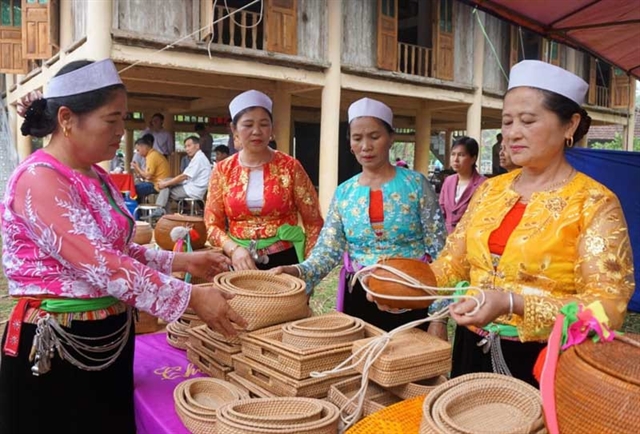 |
| Mây Tre Đan Cooperative in Bùi hamlet, Nhân Nghĩa commune, Lạc Sơn district. — Photo hoabinh.gov.vn |
Supported by the Cooperative Union of Hòa Bình Province, Hang Kia and Pà Cò, Mông ethnic minority villages, addressed challenges through the establishment of the Hang Kia Tourism and Agriculture Service Cooperative and the A Hiệp Cooperative. The Hang Kia Cooperative, with 11 members and a VNĐ200 million capital, achieved an estimated 2022 revenue of VNĐ650 million and an average monthly income of VNĐ4 million per member.
Similarly, the A Hiệp Cooperative, with eight members and a VNĐ200 million capital, achieved a 2022 revenue of nearly VNĐ500 million and an average monthly income of VNĐ3 million per member.
Innovating support mechanisms and policies
Situated in the central highlands of Hòa Bình Province, Lạc Thủy district is home to a concentrated population of ethnic Mường and Dao people. Since 2017, eight members of the Dương Nam Agricultural Cooperative (in Phú Thành commune) have collaborated to produce high-quality, economically efficient products on a 13-hectare area dedicated to oranges, Diễn grapefruits, and tea.
Dương Ngọc Chức, Director of the Dương Nam Agricultural Cooperative, shared that the primary goal of the cooperative is to play a supportive role for farmers collaborating with each other. This collaboration aims to transition from small-scale, fragmented production to concentrated, high-efficiency commodity production.
Throughout its operations, the Dương Nam Cooperative has received consistent attention and support from various levels of government. Notably, the provincial Cooperative Union provided a support fund of VNĐ15 million, while the Department of Agriculture and Rural Development of Lạc Thủy district offered technical assistance, enabling participation in training courses and study tours of effective production and business models.
Recently, the Dương Nam Cooperative received recognition from the provincial Cooperative Union as an advanced model in creating regular employment. The cooperative has played a crucial role in providing stable incomes for its members and labourers, contributing significantly to local sustainable poverty reduction.
In Hòa Bình Province, effective implementation of ethnic policies, guided by the Party Committee and provincial authorities, is evident. Infrastructure development and targeted support policies have led to a rapid decrease in the poverty rate, down 2.5 per cent from 2021 to 2022 to nearly 13 per cent. Positive shifts in the economic structure and improved material and spiritual lives are notable among ethnic minorities in remote and challenging areas.
Hòa Bình Province is prioritising the effectiveness of collective economic models and cooperatives through increased resource concentration and investment. This involves state budget allocation and social mobilisation, especially in challenging ethnic minority and mountainous regions.
Reforms in collective economic mechanisms aim to boost membership, scale, and production linkages, enhancing overall economic efficiency. The province also plans to promote trade, expand markets for collective economic products, and stimulate cooperative activities province-wide. — VNS


